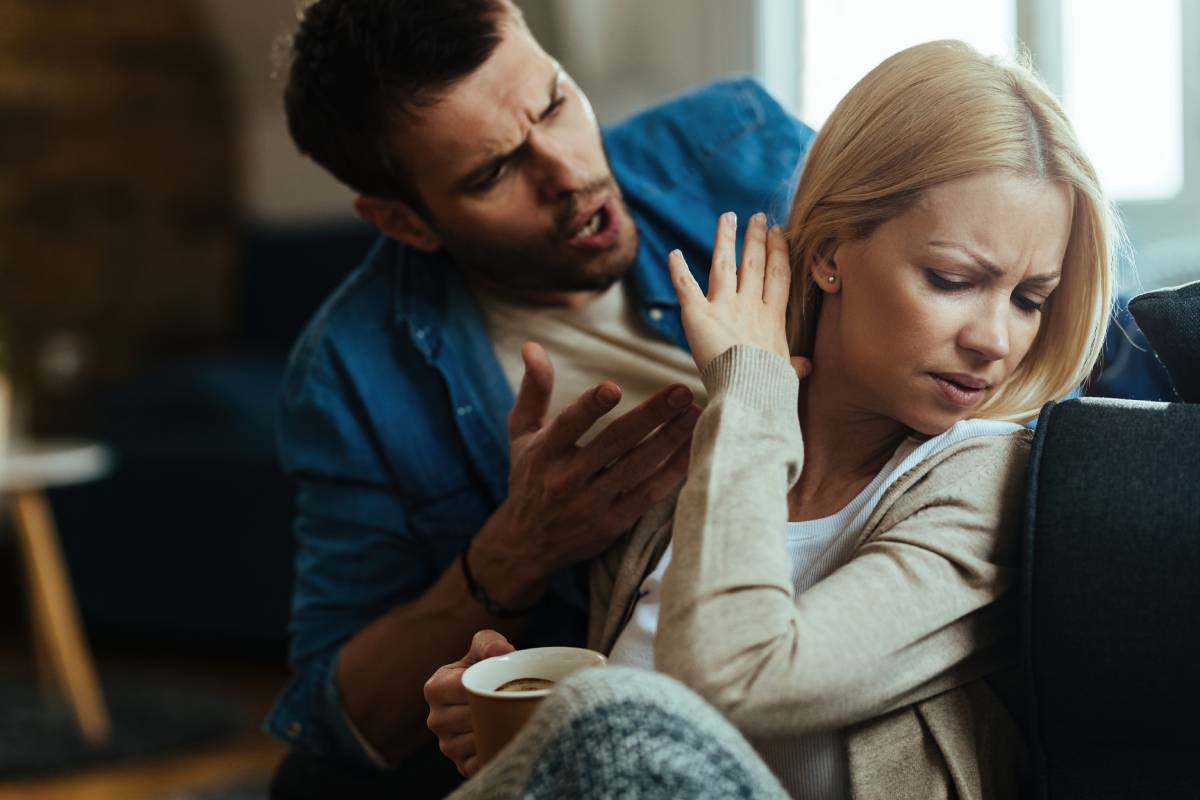Are You in a Toxic Relationship? Signs You Shouldn’t Ignore and How to Protect Yourself
Love and companionship should bring peace, support, and growth into your life. But what if being with someone constantly makes you feel emotionally drained, anxious, or insecure? If your relationship feels like more of a burden than a blessing, you might unknowingly be involved with a toxic person.
This article explores what a toxic person is, how to recognise warning signs, and — most importantly — how to protect your mental health and emotional well-being.
What Is a Toxic Person?
A toxic person is someone whose behaviour or mindset consistently harms others emotionally. They may not always intend to hurt you, but their actions, words, or attitudes can slowly chip away at your confidence, peace of mind, and self-worth.
Toxic people often:
-
Use negative or manipulative language
-
Try to control or dominate others
-
Lack empathy
-
Shift blame onto others
-
See themselves as the centre of every situation
Being around someone like this regularly can leave you feeling stressed, exhausted, confused, and emotionally unsafe.
Key Signs You’re in a Relationship With a Toxic Person
If you’ve ever walked away from a conversation feeling worse than before — unsure why — you might be dealing with toxicity. Here are some major red flags:
1. You Feel Emotionally Drained After Interacting With Them
One of the most common signs is the sense of emotional exhaustion after spending time with them. Rather than feeling uplifted or understood, you’re left feeling tense, worn out, or like you constantly need to defend yourself.
2. They Constantly Undermine Your Confidence
Toxic individuals often make sarcastic remarks, belittle your appearance or skills, or throw in backhanded compliments. Over time, this erodes your self-esteem and makes you second-guess yourself — even in areas you once felt secure in.
3. They Try to Control Your Life
Does your partner or friend tell you what to wear, who to hang out with, or what choices to make in your life? Toxic people often exert subtle — or overt — control, disguised as “concern” or “just trying to help.”
If your freedom feels restricted, it’s time to re-evaluate the relationship.
4. They Never Take Responsibility
When issues arise, a toxic person will rarely (if ever) admit fault. Instead, they twist situations to make it seem like everything is your fault. Phrases like “You made me act this way” or “I wouldn’t have done this if you hadn’t…” are all forms of emotional manipulation.
5. They Dismiss or Ignore Your Feelings
When you express discomfort or hurt, do they listen? Or do they interrupt, change the subject, or tell you you’re overreacting?
Healthy relationships are built on mutual respect and empathy. If you’re constantly being shut down, your emotions are not being valued.
6. They Make You Feel Guilty — Even When You’ve Done Nothing Wrong
Toxic people are skilled at making you feel guilty, even for things outside your control. Statements like “I’m miserable because you don’t love me enough” or “I’m tired because of you” manipulate your emotions and trap you in a cycle of self-blame.
7. The Relationship Is Full of Drama
Love should be a safe space, not a battlefield. If your connection is filled with constant arguments, emotional rollercoasters, and unresolved tension, it’s not healthy. High-drama relationships are emotionally chaotic and rarely sustainable.
How to Protect Yourself From a Toxic Person
Recognising the signs is the first step — but what can you do once you realise you’re dealing with someone toxic?
1. Pay Attention to Patterns and Trust Your Feelings
Don’t dismiss your own discomfort. If you find yourself repeatedly feeling anxious, small, or sad after interacting with someone, those feelings are valid. Tune in to the patterns — they’re often the clearest signs something is wrong.
2. Set Firm Boundaries
Boundaries are not selfish — they are acts of self-respect. Clearly communicate what behaviours are unacceptable, such as insults, controlling actions, or manipulation.
For example:
“It makes me uncomfortable when you comment on my appearance negatively. Please stop.”
If they continue to cross your boundaries, it’s a sign they don’t respect you — and that’s a huge red flag.
3. Don’t Feel Guilty for Protecting Your Energy
Many people stay in toxic relationships because they feel guilty or responsible for the other person’s happiness. But your first responsibility is your own well-being.
It’s okay to walk away from someone who consistently drains your energy or undermines your sense of self.
4. Reach Out for Support
Talk to someone you trust — a friend, family member, or therapist. Having an outside perspective can help you see the situation more clearly, validate your feelings, and support your decision-making.
If the situation is emotionally complex, a licensed mental health professional can help you navigate it with tools and clarity.
5. Know When to Walk Away
You cannot fix someone who refuses to acknowledge their behaviour. If repeated conversations and boundary-setting haven’t worked, it may be time to end the relationship altogether.
Leaving isn’t easy — especially if you’ve invested time, love, or hope into the relationship — but your peace is worth it.
The Hidden Cost of Staying With a Toxic Person
Remaining in a toxic relationship doesn’t just impact your day-to-day mood — it can deeply affect your mental health, self-worth, and ability to trust in future relationships.
Long-term exposure to emotional toxicity has been linked to:
-
Anxiety and depression
-
Chronic stress and fatigue
-
Low self-esteem
-
Trouble forming healthy relationships later on
Protecting your peace isn’t weakness. It’s a powerful act of self-love.
Final Thoughts: You Deserve Better
A healthy relationship should bring you joy, growth, and a sense of emotional safety — not pain and confusion.
If you’re in a toxic relationship, know that you are not alone, and you are not to blame. Recognising the signs, setting boundaries, and reaching out for support are all crucial steps toward reclaiming your emotional well-being.
You deserve love that lifts you up, not one that drags you down. Be brave enough to protect your heart and choose peace — because real love doesn’t hurt, it heals.
Remember: A good relationship should feel like a safe haven, not a storm you’re constantly trying to survive. Choose people who choose you, respect you, and bring out the best in you.



